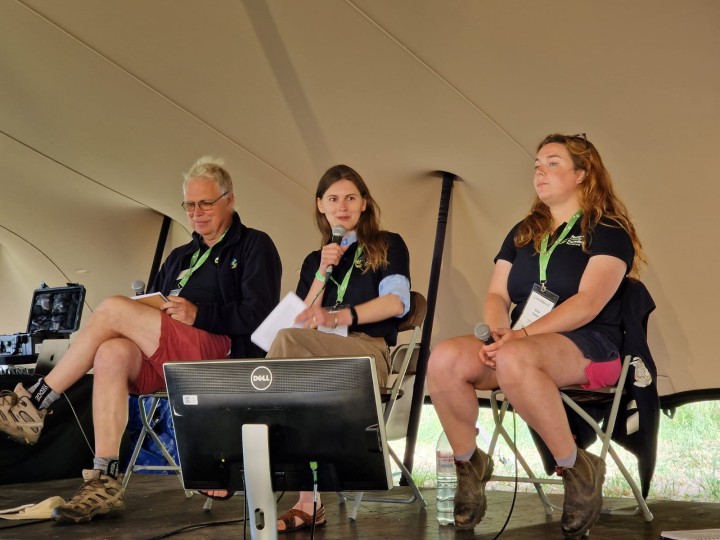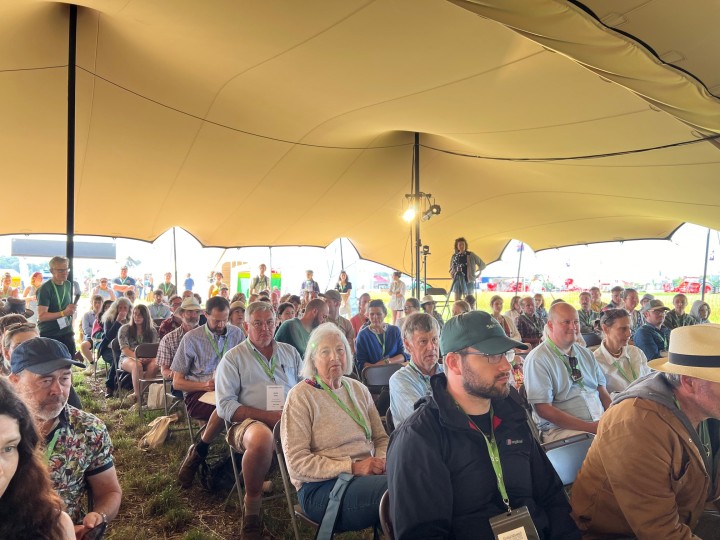Our panel consisted of NFFN Champions Elise Sutton, Ana Reynolds, Matt Elphick, and NFFN England Vice Chair Holly Purdey, with Anthony Curwen, NFFN England Vice Chair, chairing the discussion.
At Groundswell this year, our session focused on the key topic of new entrant farmers. Several of our Farming Champions and Steering Group members spoke to a pleasingly large and enthusiastic crowd in the Discussion Tent during the festival, which was a welcome, if unexpected occurrence, considering the event was one of the first talks on the Thursday schedule at a bright and early 9 a.m. The panel shared their personal experiences of entering the world of regenerative agriculture, provided advice for those at the beginning of their journey and discussed how to encourage a new generation of food production enthusiasts into the industry.




